Even though you have probably heard of Steve Jobs, Nicholas Tesla, Bill Gates, rarely do you study female entrepreneurs like Annie Malone, or Madam C.J. Walker, the first African American millionaires! The story of C.J. Walker is just as amazing, if not more so, than those of the old boys club of entrepreneurs, and we want to spread her success story.
Madame C.J. Walker was born Sarah Breedlove, into a family of plantation workers. Being the first to be born under the Emancipation Proclamation, she was legally free but very much aware of racism and the obstacles her family had to overcome. Sarah was born on December 23, 1867 and after losing both her parents at the young age of 9, she moved down to St Louis with her brothers, who were both barbers. With her two brothers working as barbers, and the connection between her hair and confidence, it’s no wonder Walker was inspired to start her own hair product company. Working as a laundress to support herself in the 1890’s Walker began losing her hair, a common ailment for women due to the poor hygienic abilities of the time. Enter Annie Malone’s Wonderful Hair Grower! Walker tried Malone’s products with incredible succes. She loved the products so much, she became a sales agent for Malone’s Poro Company, selling her products door to door. Madame C.J. Walker felt the best thing she could do for other women was give them the treatment that changed her life, until she decided to make her own formula and products.
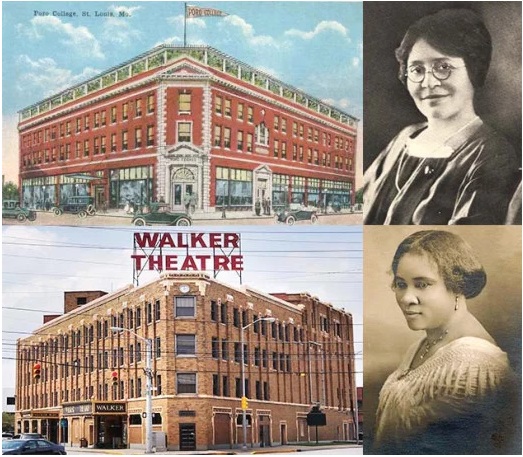
According to Walker, the recipe for her formula came to her in a dream; a big blak man appeared and read the ingredients out to her, however this is a hot debate topic. Some say Walker stole Malone’s original formula and modified it, other think she really did dream up her own Wonderful Hair Grower! No matter how it happened Walker’s company was born, as well as a rivalry with her former boss Annie Malone.
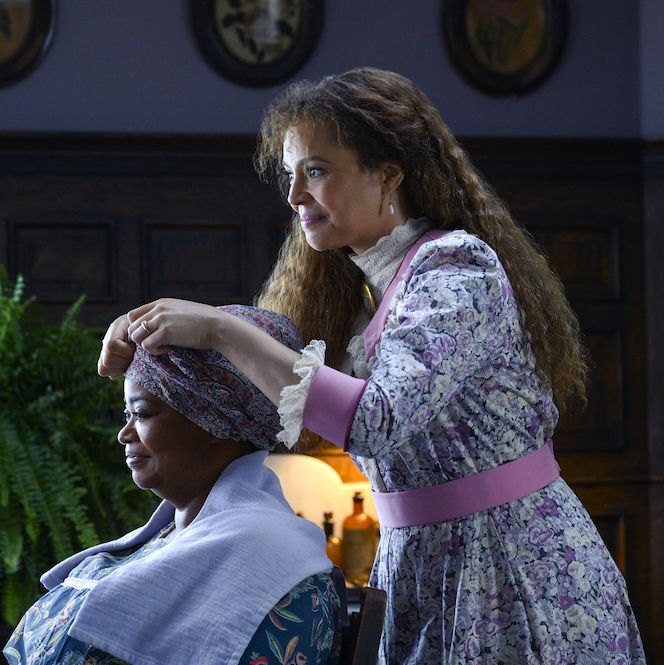
In Self-Made, the Netflix series based on Walker’s life, Malone and Walker are painted with a harsh rivalry that followed them for years. Painted as rivals in colorism and business, there was no greater adversary for Malone than Walker. Firstly, Netflix’s Addie Munroe, their iteration of Annie Malone, was light skinned and took advantage of the colorism that favored her. Munroe was villainous, and Walker was the perfect protagonist; an excellent saleswoman, a true rags to riches story, a woman rising to the challenge and facing her obstales head on. Walker was a strong competitor for Malone, becuase she knew the importance of hair growers, having experienced the boost of confidence it gave her in herself, but that doesn’t mean they were bitter rivals, as Netflix portrays.
In many ways, Malone and Walker were a part of a close-knit community of black business women, and it was in their best interest to have friendly competition without trying to tear each other down. In Walker’s biography written by her great great granddaughter A’Lelia Bundles, she quotes a letter published by Malone portraying the animosity between the two brands but not the two women: “We are being imitated and largely by persons whose own hair we have actually grown. They have very frequently mentioned us when trying to sell their goods (saying that ‘theirs is the same’ or ‘just as good’). … Beware of imitations.’”Malone was naturally protective of her product – she spent years formulating it, and it’s safe to assume Walker took great inspiration from it. Yet there is nothing against Walker’s skin color, appearance, or any harsh criticism of her or her products. Like Walker, Malone wanted to do her part to empower black women by opening multiple Poro Colleges, where women like Walker could attend and learn how to use and sell Poro products. She also employed hundreds of women to sell her product; her success should be just as empowering to the nation as Walker’s.
Like Walker, Malone wanted to do her part to empower black women by opening multiple Poro Colleges, where women like Walker could attend and learn how to use and sell Poro products. She also employed hundreds of women to sell her product; her success should be just as empowering to the nation as Walker’s.
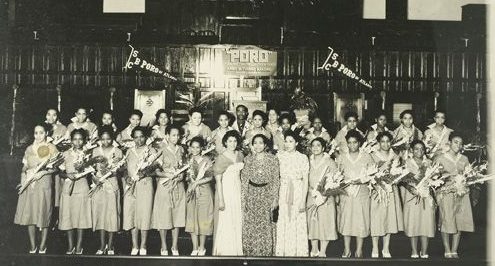
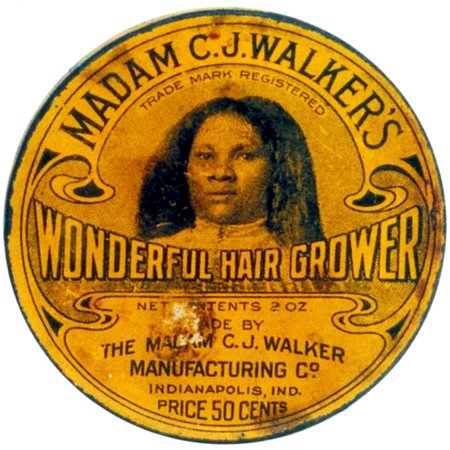
Walker took a lot of inspiration from Malone’s business, being in the hair industry, as well as the business model employing regular women to go out and sell her products. She was determined to succeed to lift herself out of poverty, and lift her community. While the Netflix series hits on Walker’s feelings of inadequacy based on the darker color of her skin, Annie Malone and Madame C.J. Walker had no such disputes. In fact this article says it perfectly: “Although “colorism was very real, and still is,” it was a mistake for the series’ creators to focus on “light-skin privilege” through the malevolent character of Addie Monroe”, said Erica Armstrong Dunbar, the association’s director and a Rutgers University history professor. In doing so, they made “viewers forget that the real villain during this period was white supremacy.”
Madame C.J. Walker was the first self made black millionaire, but she was not the only one. Annie Malone should not have to be swept under the rug of history to acknowledge and celebrate Walker’s success. Both women prevailed in a time when they were set up to fail, and they showed the world that female enterprise was, and still is the future. Let’s celebrate Women’s History Month by remembering both women.
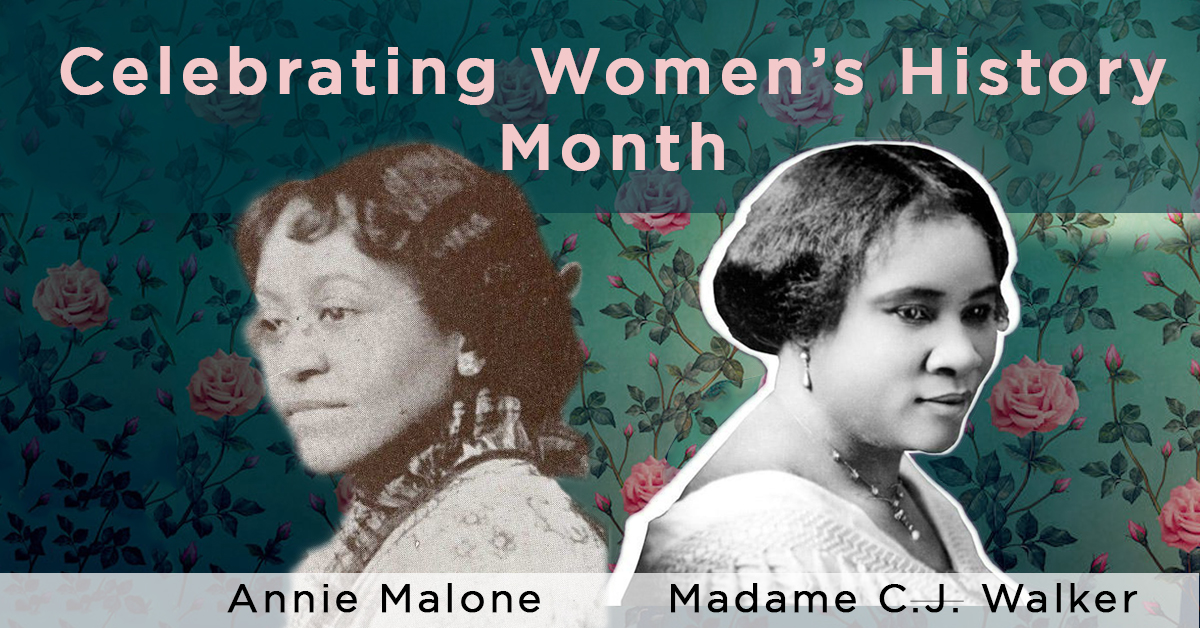

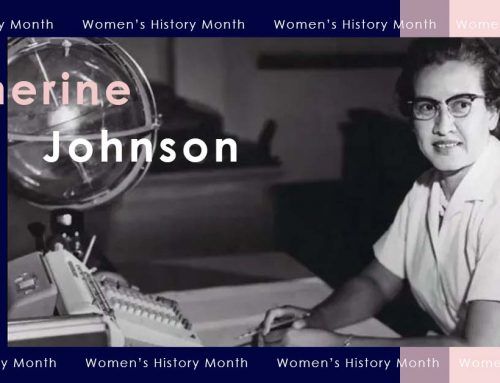
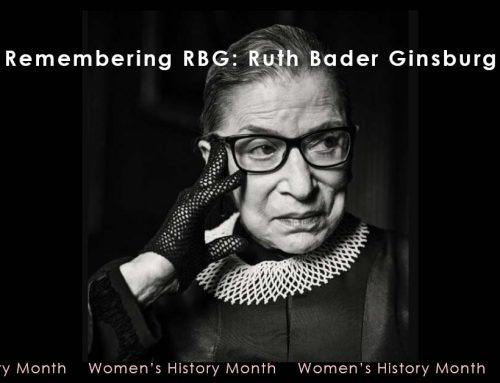


Leave A Comment